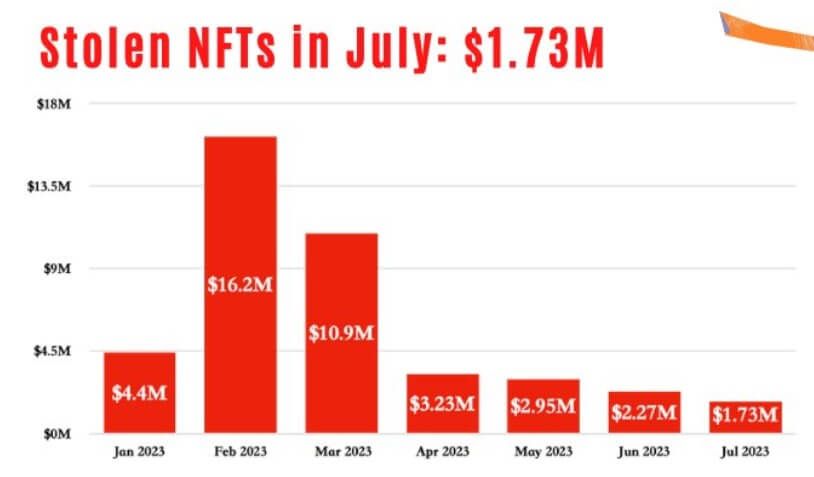Meta’s Zuckerberg sees metaverse as long-term goal despite $3.7B loss, AI investments ‘paying off’

During the Q2 Earnings Call, Meta CEO Mark Zuckerberg outlined the company’s commitment to its metaverse vision and artificial intelligence (AI).
Zuckerberg stated, “The two technological waves that we’re riding are AI in the near term and the metaverse over the longer term.”
Further, the company’s investments in AI have made significant strides, as Zuckerberg noted,
“Investments that we’ve made over the years in AI, including the billions of dollars we’ve spent on AI infrastructure, are clearly paying off across our ranking and recommendation systems and improving engagement and monetization.”
The absence of specific mentions of crypto, Web3, and NFTs during the earnings call makes it evident that Meta is focused on the intersection of AI and the metaverse over previous blockchain-related products such as NFTs or tokens.
Meta scrapped its NFT plans earlier in March, with Stephane Kasriel, Head of Commerce and Financial Technologies, stating the company was “winding down digital collectibles” to focus on other areas of the business.
AR / VR and metaverse
The CEO announced the forthcoming launch of their Quest 3 mixed reality headset, which he claimed is the most powerful device yet with superior displays, resolution, and graphics performance, and a next-gen Qualcomm chipset.
While the company’s vision for the metaverse continues to take form, a noteworthy discussion during the call revolved around Reality Labs, Meta’s augmented and virtual reality division.
CFO Susan Li provided a financial overview, highlighting that Reality Labs generated $276 million in Q2 revenue, representing a 39% decrease due to lower Quest 2 sales. The division’s expenses, however, stood at a significant $4 billion.
Although Reality Labs posted an operating loss of $3.7 billion, Zuckerberg remains optimistic about its role in the company’s long-term strategy, saying, “Our ambitions in Reality Labs haven’t changed, and it continues to be a significant long-term opportunity for us.”
Despite the financial challenges, the company is focused on mitigating technical hurdles and scaling the adoption of current products. As Li stated,
“A lot of the investment that’s driving the growth here is around conducting the fundamental R&D to solve hard technology problems that are going to enable our vision here.”
AI developments
Meta is also developing new products using an AI system called Llama. According to Zuckerberg, these tools will work across the company’s services, enhancing the user experience. He stated
“We’re also building a number of new products ourselves using Llama that will work across our services.
I’m going to share more details later this year, but you can imagine lots of ways AI could help people connect and express themselves in our apps.”
These products aim to improve mobile apps and the metaverse, assisting users in creating immersive worlds and the avatars and objects inhabiting them.
Zuckerberg further reinforced the company’s commitment to AI and the metaverse, stating,
“We’ve been working on both of these two major priorities for many years in parallel now, and in many ways, the two areas are overlapping and complementary.”
This dual focus remains at the core of Meta’s initiatives, dictating the company’s overall direction.
Financial difficulties
On the financial side, CFO Susan Li detailed Meta’s investment philosophy. Despite the efficiency measures undertaken this year, she emphasized that the company remains focused on investing in significant opportunities ahead. She said,
“Supporting these initiatives will come from prioritizing them against other areas of work and shifting resources. However, in some cases they will require incremental investment.
This is particularly true in the areas we see the most significant opportunity, which include AI and the metaverse.”
Looking forward, Li hinted at potential drivers of total expense growth in 2024, including higher infrastructure-related costs, increased payroll expenses due to a shift towards higher-cost technical roles, and an expected significant increase in operating losses for Reality Labs due to ongoing product development efforts in AR/VR and investments to further scale their ecosystem.
This financial trajectory underscores Meta’s commitment to its AI and metaverse vision, underlining the tech giant’s determination to invest heavily in these opportunities despite the economic challenges.
In summary, despite facing formidable financial and technical challenges, Meta’s commitment to the metaverse and AI remains steadfast.




